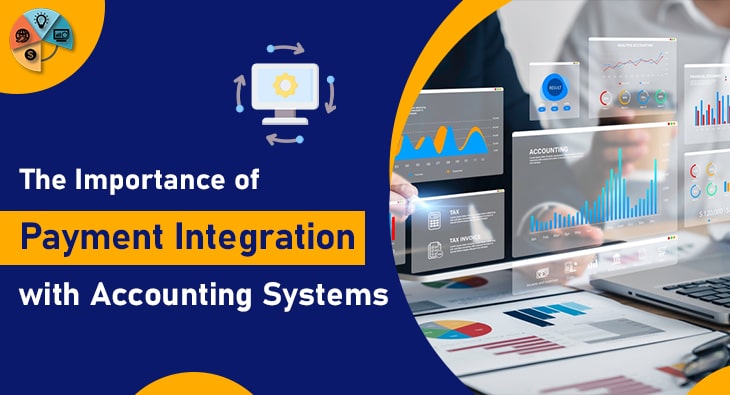In today’s fast-paced business environment, effective financial management is crucial for success. One key aspect that often gets overlooked is the importance of payment integration with accounting systems. By seamlessly connecting payment processing with accounting software, businesses can streamline their financial operations, reduce manual data entry, and minimize errors.
This integration not only improves efficiency but also provides real-time visibility into cash flow, helping businesses make informed decisions. Moreover, an integrated accounting system allows for easier tracking of expenses and revenue, ensuring that financial reports are accurate and up to date.
As companies continue to seek ways to enhance productivity and maintain a competitive edge, the benefits of payment integration cannot be underestimated. Embracing this technology is essential for businesses aiming to optimize their financial processes and achieve long-term growth.
Streamlining Financial Operations
Payment integration with accounting systems plays a vital role in streamlining financial operations. When payment processes are integrated, businesses can automate various tasks such as invoice generation, payment reconciliation, and financial reporting.
This automation reduces the time and effort required to manage these tasks manually, freeing up valuable resources for other important activities. Additionally, integrated systems can sync transaction data automatically, eliminating the need for manual entry and thereby decreasing the likelihood of human error.
This not only speeds up financial operations but also ensures a higher level of accuracy in financial records. Furthermore, integrated payment and accounting systems can facilitate quicker access to financial data, enabling finance teams to monitor performance and generate reports in real-time.
As a result, businesses can respond more swiftly to financial issues, allocate resources more effectively, and maintain better control over their financial health.
Some Related Blogs
- The Impact of Payment Technology on Customer Experience
- Security Best Practices for Payment Processing
- Cryptocurrency as a Payment Option
- The Role of Payment Gateways in E-Commerce Success
Enhancing Data Accuracy
One of the primary advantages of payment integration with accounting systems is the enhancement of data accuracy. When payment transactions are automatically recorded in the accounting system, it eliminates the need for manual data entry, which is often prone to errors.
Automated systems ensure that every transaction is captured correctly and consistently, leading to more reliable financial records. This precision is crucial for maintaining accurate ledgers, which form the basis for all financial reporting and analysis.
Additionally, integrated systems can match payments with invoices in real-time, reducing discrepancies and ensuring that accounts receivable and accounts payable are always up to date. Enhanced data accuracy not only supports better financial management but also instills greater confidence in the numbers reported to stakeholders.
By leveraging technology to improve data integrity, businesses can reduce the risk of financial misstatements and ensure compliance with regulatory requirements.
Improving Cash Flow Management
Payment integration with accounting systems significantly improves cash flow management by providing real-time insights into incoming and outgoing funds. Businesses can track payments and expenses with greater accuracy, ensuring they always have a clear picture of their financial standing.
Automated payment processing and reconciliation speed up the cash flow cycle, reducing the time it takes to receive and apply payments. This swift processing helps businesses manage their working capital more effectively, allowing for better planning and allocation of resources.
Additionally, integrated systems offer timely notifications and alerts for due payments and outstanding invoices, helping companies avoid late fees and optimize their collections process.
By leveraging these features, businesses can maintain a healthier cash flow, reduce financial stress, and ensure they have the necessary funds to cover operational expenses and invest in growth opportunities. Enhanced visibility into cash flow also supports better financial forecasting, allowing businesses to make proactive adjustments to their financial strategies as needed.
Ensuring Compliance and Reducing Risks
Payment integration with accounting systems plays a crucial role in ensuring compliance with financial regulations and reducing risks associated with financial management. By automating the recording and reconciliation of transactions, businesses can maintain accurate and up-to-date financial records, which are essential for meeting regulatory requirements.

Integrated systems can also provide detailed audit trails, making it easier for companies to demonstrate compliance during audits. This traceability is vital for identifying and rectifying discrepancies quickly, reducing the risk of fraud and financial misstatements.
Additionally, automated systems can help enforce internal controls by ensuring that transactions are authorized and processed according to company policies. This level of oversight minimizes the potential for errors and unauthorized activities, thereby protecting the business from financial and reputational harm. By leveraging payment integration technology, companies can enhance their compliance efforts and mitigate risks, creating a more secure and reliable financial environment.
Enhancing Customer Experience
Payment integration with accounting systems significantly enhances the customer experience by offering a seamless and efficient payment process. Customers appreciate the convenience of quick and accurate transactions, whether they are making purchases or settling invoices. Integrated systems ensure that payments are processed promptly and correctly, reducing the chances of errors and delays.
This efficiency helps in building trust and satisfaction among customers, as they can rely on the business to handle their transactions smoothly. Additionally, businesses can offer multiple payment options, catering to diverse customer preferences, which further enhances convenience.
Real-time payment tracking also allows businesses to provide instant confirmations and updates to customers, keeping them informed every step of the way. By automating routine tasks and minimizing manual intervention.
Integrated payment and accounting systems free up customer service teams to focus on more complex and personalized interactions, thereby improving overall service quality. Enhanced accuracy and speed in payment processing lead to a more positive customer experience, fostering loyalty and repeat business.
![]()
Email us anytime!
Email customer service 24/7
![]()
Call us anytime!
Reach customer care 24/7 at +1 (727) 330-3944


